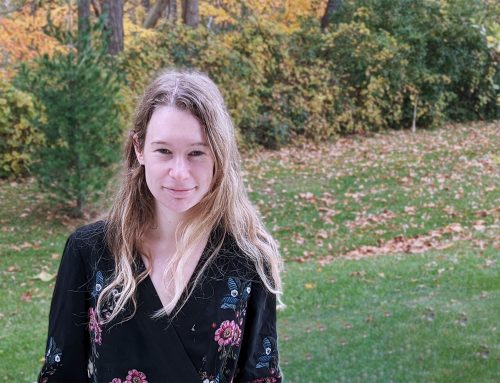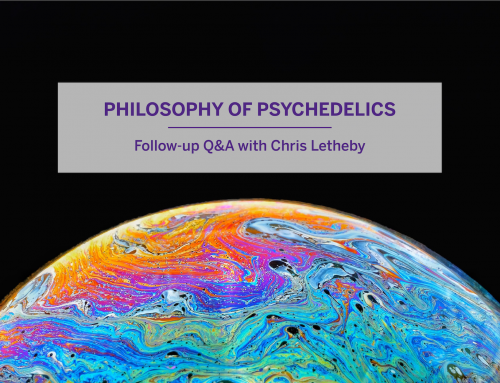Reposted from Je fais, donc je suis. Marks of the form [^2] should be read as footnotes.
I spent last week in Washington, DC, interviewing with about 10 different federal government offices as a finalist for a AAAS Science and Technology Policy Fellowship. As you’ll see from those slides, AAAS policy fellows are primarily natural scientists and engineers; while it’s common to have a handful of social scientists and historians, and a few fellows have had Master’s degrees in philosophy, as far as I can tell there’s not yet been a policy fellow with a Ph.D. in philosophy.[^2]
[^2]: Just to be clear, AAAS S&T Policy fellows are different from AAAS fellows. The latter are distinguished senior researchers. In this post, I’m talking about the policy fellows program. AAAS policy fellows are required to have either a doctoral degree or a master’s in engineering and a few years’ work experience.
In part because of this, going into the week I was nervous about being perceived as an irrelevant interloper. Notoriously, quite a few high-profile physicists think philosophy of science is useless or worse. Would I simply be laughed out of every office that interviewed me? Would I have to spend the week repeatedly justifying my existence?
I think these kinds of questions and self-doubts are the flip side of an issue that’s been explored in several blog posts lately, most prominently by Subrena Smith, Roberta Millstein, and Chris Eliasmith. Many contemporary philosophers of science are deeply engaged in current science. (For example, here at the Rotman Institute, several of our grad students and postdocs are active members of research labs in such fields as neuroscience and entomology.) In James Woodward’s sense, many of us are methodologists rather than metaphysicians, primarily interested in understanding (and improving) actual scientific practice in its messy detail. But this means that our analytical tools and interests are rather different from those of many of other philosophers, and as a result we are sometimes perceived as not doing “real” philosophy.
At the same time, the methods and interests of philosophers of science are rather different from those of practicing scientists and science administrators (who are generally former practicing scientists). So this might mean that philosophers of science are caught: neither “real” philosophers nor “real” scientists, but some sort of incoherent hybrid.
Fortunately, my worries were completely misplaced. Again, I interviewed at about 10 different offices, speaking with people (primarily natural scientists by training) in the National Science Foundation, Environmental Protection Agency, and US Department of Agriculture.[^1] In almost every office, the people I met with already recognized that I could make a contribution to their work. In several cases they were downright excited at the prospect of hosting a philosopher of science and ethicist for a year or two. I had a number of exciting discussions about how my research and academic interests were directly relevant to some problem or project that an office was working on.
[^1]: The AAAS S&TP fellowships are organized into the three branches of the federal government. Nearly all fellows are in the executive branch, and there are four main executive branch programs: Diplomacy, Security, and Development; Energy, Environment, and Agriculture; Health, Education, and Human Services; and Big Data and Analytics. I’m a finalist in Energy, Environment, and Agriculture and Health, Education, and Human Services.
In short, the general perception was that I, as a philosopher of science, had a lot to offer. Thanks to my training in philosophy and my research work as a philosopher of science, I have a combination of skills and competencies that typical policy wonks — and even natural scientists and engineers — don’t.
First, to speak about philosophers in general, we are highly trained in both careful, detailed analysis and clear communication. Natural scientists and engineers have a similar kind of emphasis on analysis in their training, but mostly write terse lab reports rather than 8,000-word argumentative essays.
Second, most philosophers of science have at least the same degree of technical competence in a scientific field as, say, someone with a master’s degree. We might not be able run a research lab, but we’re certainly capable of understanding a scientific journal article and having an informed discussion with actual research scientists. (Some STS scholars call this “interactional expertise.”)
Third, thanks to these two points, philosophers of science are often in a good position to develop what I call “translational expertise.” This is skill in communicating technical ideas to a non-technical audience. In many of the offices where I interviewed, there was interest in having me work on improving communications between agency researchers (developing new toxicology assays, for example) and regulators (who need to negotiate decisions about exposure standards based on these new methods among various stakeholders).
Fourth, many of the issues that philosophers of science are grappling with today are closely related to issues faced by science policymakers: the strengths and limitations of novel methods, how to deal with uncertainty, how to integrate different kinds of evidence, the proper roles of interpretation and values, what we mean by “objectivity” or “policy-relevant but policy-neutral,” the internal social organization of science, ethical issues in new technologies, the relationship between experts, policymakers, and the general public, and so on. Even historically “technocratic,” “command and control” agencies like the EPA (those are the words of an EPA scientist who interviewed me) are beginning to recognize the need to incorporate qualitative social science and philosophy in their decisionmaking processes.
Outlined like this, I’m actually rather surprised that no philosophers of science have preceded me as AAAS science policy fellows. Many of us care a great deal about making our work socially relevant and socially engaged. And it seems clearly that we have specific things to contribute to science policy. Hopefully my experience will serve as a model for other philosophers to follow.





